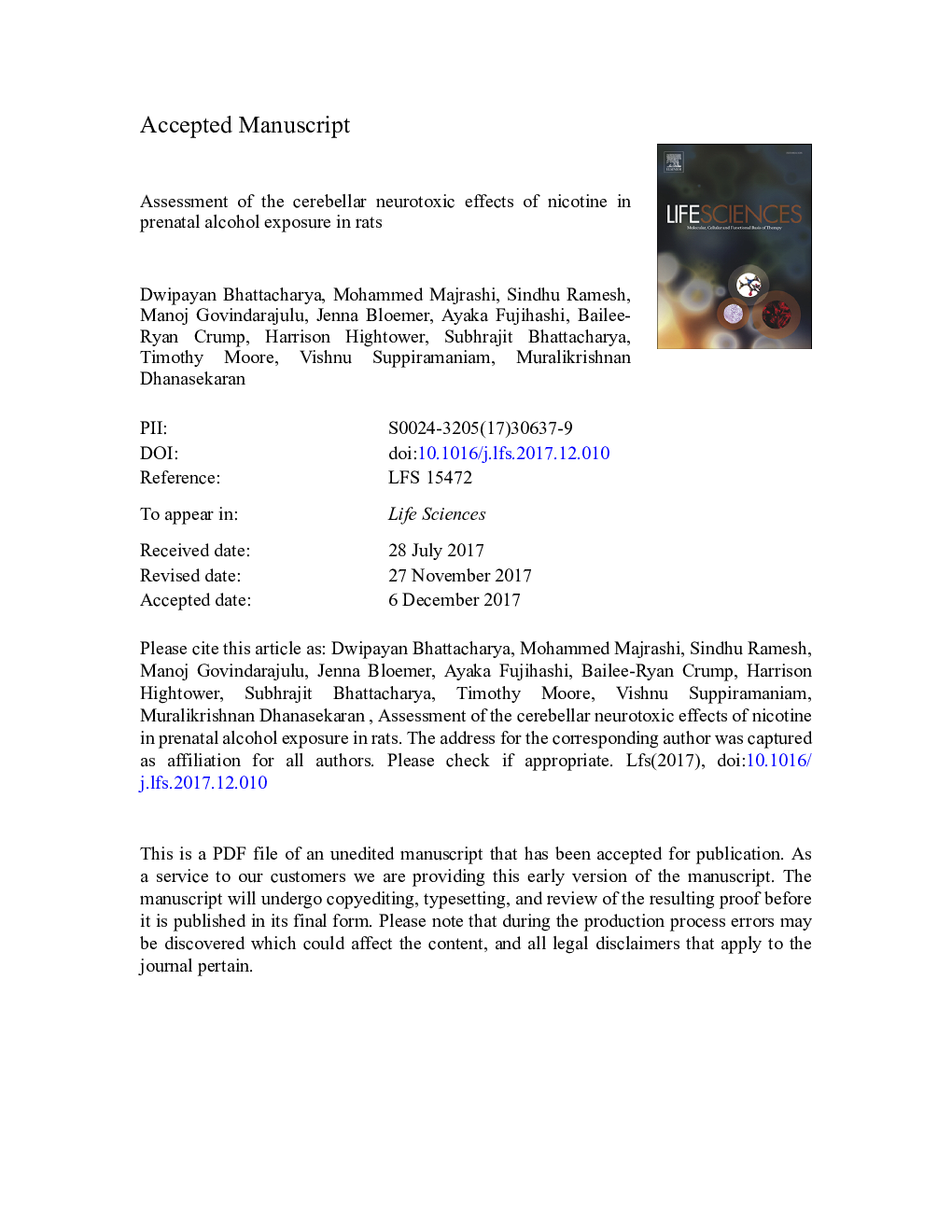| Article ID | Journal | Published Year | Pages | File Type |
|---|---|---|---|---|
| 8535640 | Life Sciences | 2018 | 39 Pages |
Abstract
The adverse effects of prenatal nicotine and alcohol exposure on human reproductive outcomes are a major scientific and public health concern. In the United States, substantial percentage of women (20-25%) of childbearing age currently smoke cigarettes and consume alcohol, and only a small percentage of these individuals quit after learning of their pregnancy. However, there are very few scientific reports on the effect of nicotine in prenatal alcohol exposure on the cerebellum of the offspring. Therefore, this study was conducted to investigate the cerebellar neurotoxic effects of nicotine in a rodent model of Fetal Alcohol Spectrum Disorder (FASD). In this study, we evaluated the behavioral changes, biochemical markers of oxidative stress and apoptosis, mitochondrial functions and the molecular mechanisms associated with nicotine in prenatal alcohol exposure on the cerebellum. Prenatal nicotine and alcohol exposure induced oxidative stress, did not affect the mitochondrial functions, increased the monoamine oxidase activity, increased caspase expression and decreased ILK, PSD-95 and GLUR1 expression without affecting the GSK-3β. Thus, our current study of prenatal alcohol and nicotine exposure on cerebellar neurotoxicity may lead to new scientific perceptions and novel and suitable therapeutic actions in the future.
Related Topics
Health Sciences
Medicine and Dentistry
Cardiology and Cardiovascular Medicine
Authors
Dwipayan Bhattacharya, Mohammed Majrashi, Sindhu Ramesh, Manoj Govindarajulu, Jenna Bloemer, Ayaka Fujihashi, Bailee-Ryan Crump, Harrison Hightower, Subhrajit Bhattacharya, Timothy Moore, Vishnu Suppiramaniam, Muralikrishnan Dhanasekaran,
